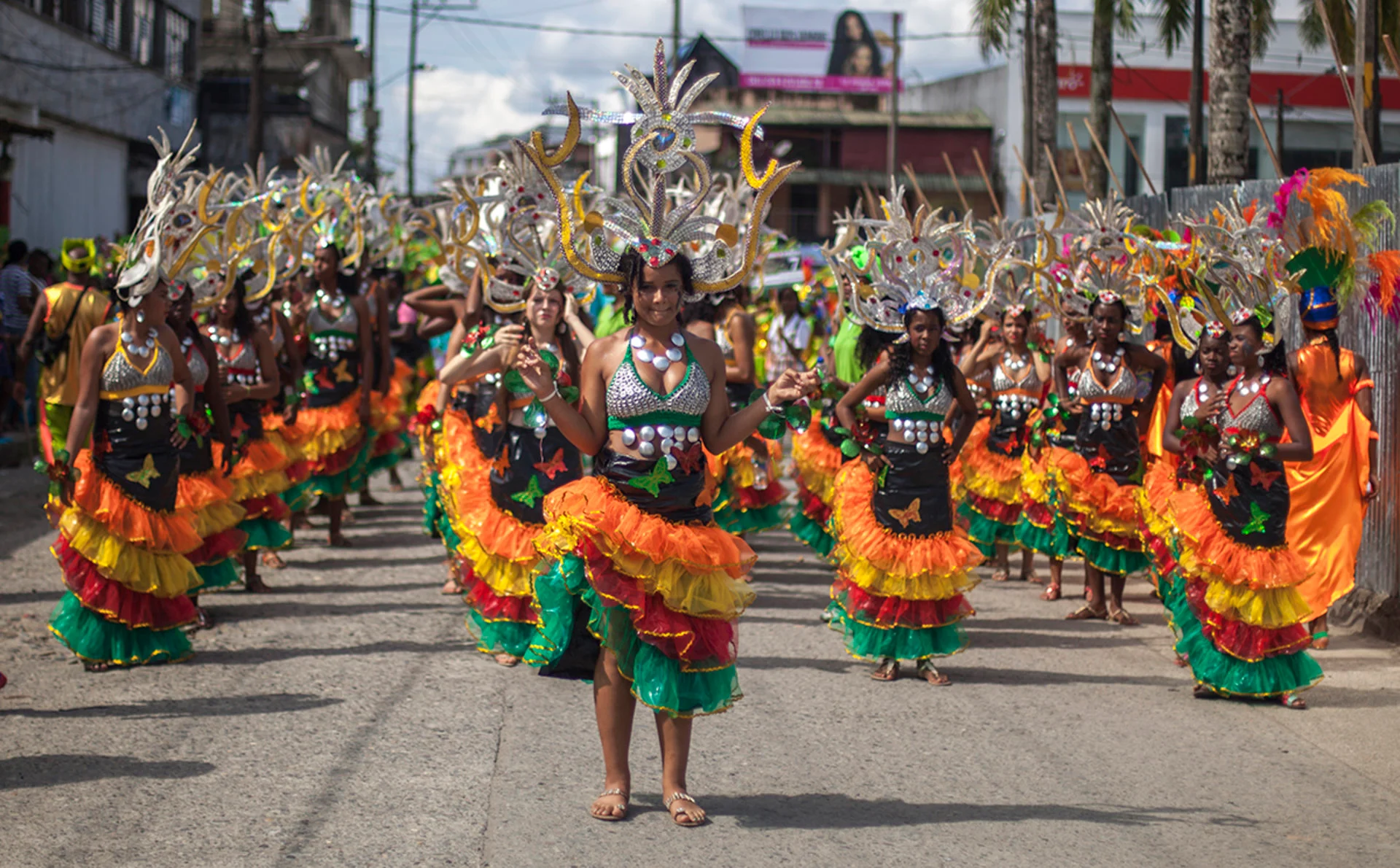love4livi.com – The San Pacho Festival, held annually in the Colombian city of Quibdó, is a vibrant celebration of Afro-Colombian culture. This unique festival pays homage to Saint Francis of Assisi, the patron saint of Quibdó, and showcases the region’s rich musical, dance, and religious traditions.
A Deep-Rooted Tradition
The roots of the San Pacho Festival can be traced back to the 17th century, when African slaves brought their cultural traditions to the region. The festival has evolved over the centuries, blending African, European, and indigenous influences into a unique cultural expression. Today, it is one of the most important cultural events in Colombia, attracting both local and international visitors.
A Musical Extravaganza
Music is at the heart of the San Pacho Festival. The streets of Quibdó come alive with the sounds of traditional Afro-Colombian rhythms, such as the currulao, the chirimía, and the bunde. These infectious rhythms are accompanied by energetic dance performances that showcase the grace and agility of the local dancers.
One of the most iconic musical expressions of the festival is the chirimía, a wind instrument made from wood and animal horn. The chirimía players, dressed in colorful costumes, create a mesmerizing sound that can be heard throughout the city.
Religious Processions and Cultural Rituals
The San Pacho Festival is also a deeply religious event. Devotees participate in processions carrying the image of Saint Francis of Assisi, praying and singing hymns. These processions are accompanied by traditional music and dance, creating a vibrant and spiritual atmosphere.
In addition to the religious processions, the festival features a variety of cultural rituals and traditions. These include the making of traditional crafts, the preparation of local delicacies, and the performance of storytelling and poetry.
A Celebration of Identity and Resilience
The San Pacho Festival is more than just a celebration of music and dance; it is a celebration of Afro-Colombian identity and resilience. The festival provides an opportunity for the Afro-Colombian community to honor their ancestors, share their cultural heritage, and strengthen their sense of community. It is a testament to the enduring spirit of Afro-Colombian culture and its ability to thrive in the face of adversity.
